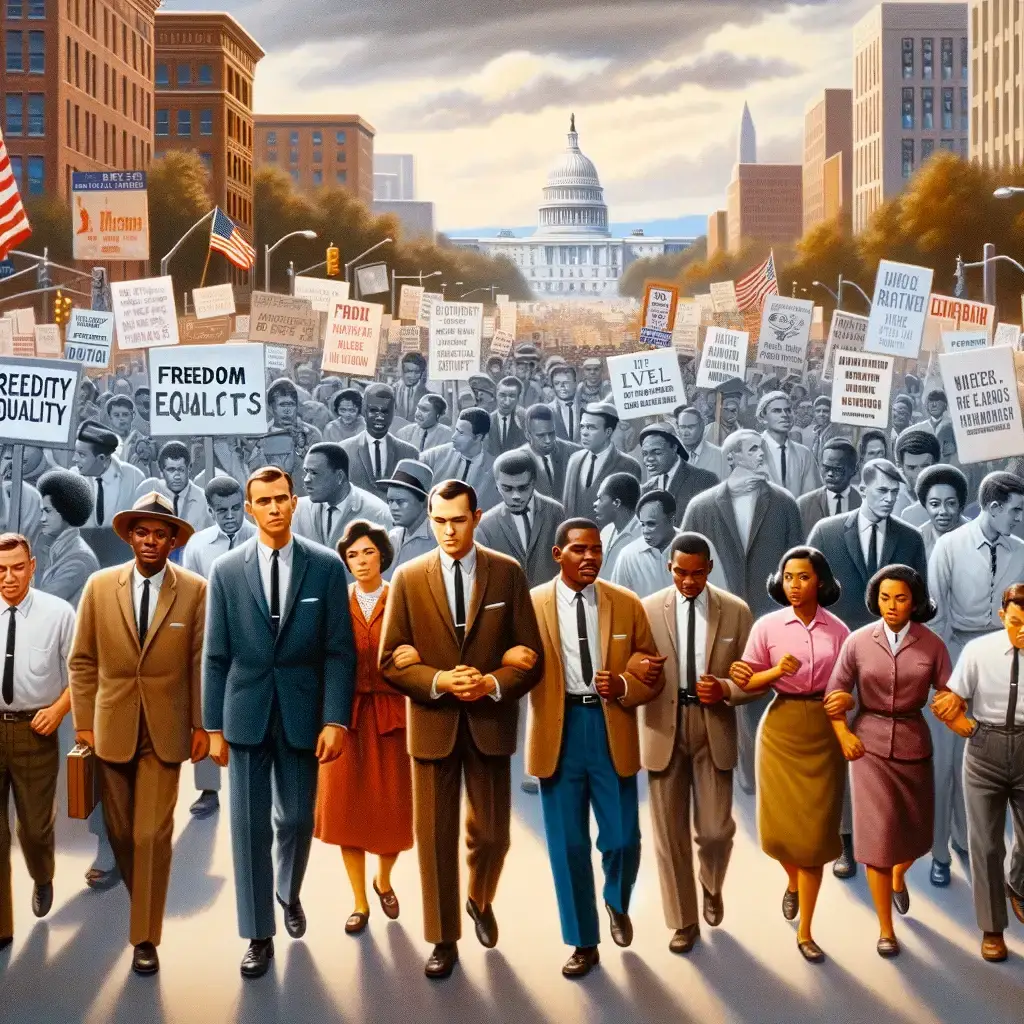Civil Rights
What are Civil Rights?
Civil rights are the protections and privileges guaranteed to individuals by the government to ensure equal treatment and prevent discrimination based on race, gender, religion, and other characteristics. These rights aim to provide fair access to opportunities, public services, and legal protections.
Why Equality Matters
Equality means that everyone has the same rights and opportunities, regardless of who they are. This includes the right to access education, jobs, and public spaces. For instance, schools and workplaces cannot discriminate based on gender or race. Ensuring equality helps build a fair and inclusive community. It’s one of the main goals of civil rights protections.
How Civil Rights Protect Voting
One important civil right is the ability to vote in elections. The Voting Rights Act of 1965 ensured that no one could be denied the right to vote because of their race or background. For example, it ended unfair practices like literacy tests that made voting harder for certain groups. Protecting voting rights gives everyone a voice in how the government works. It’s a key part of democracy.
The Role of Laws in Protecting Rights
Laws play a big role in ensuring civil rights are respected. Laws like the Civil Rights Act and the Americans with Disabilities Act protect people from discrimination in schools, jobs, and public places. For example, these laws require that buildings be accessible to people with disabilities. By passing laws, the government can enforce fairness and equality. These protections help everyone live with dignity and respect.
How Movements Change History
Civil rights movements, like the one led by Martin Luther King Jr., fought for equal treatment of all people. These movements used protests, speeches, and marches to bring attention to injustices. For example, the Montgomery Bus Boycott helped end segregation on buses. These efforts showed the power of people working together to create change. Civil rights movements continue to inspire others to stand up for equality.
Why Discrimination is Unfair
Discrimination means treating someone differently or unfairly because of who they are. This could include denying someone a job, education, or housing based on their race, gender, or religion. For instance, not hiring a qualified person because of their background is discriminatory. Civil rights laws make this illegal and protect people from unfair treatment. Addressing discrimination helps create a fairer society.
Civil Rights and Education
Civil rights ensure that every student has access to a good education, regardless of their background. For example, the Supreme Court case Brown v. Board of Education ended segregation in schools, ensuring that students of all races could learn together. Today, schools must treat all students equally and fairly. Education is a right that civil rights laws protect for everyone.
The Fight for Fairness
The fight for civil rights is about making sure everyone has the same opportunities. Activists have worked hard to challenge unfair laws and practices. For example, protests during the 1960s helped bring attention to racial inequality and led to new protections. The fight for fairness continues today as people stand up for equal treatment in areas like voting, housing, and healthcare. It’s a journey toward justice.
The Role of Leaders in Civil Rights
Leaders like Rosa Parks, Martin Luther King Jr., and Cesar Chavez played important roles in advancing civil rights. For example, Rosa Parks’s refusal to give up her seat on a bus sparked a major movement for equality. These leaders inspired people to work together and demand change. Their efforts helped shape laws and improve lives. Civil rights leaders remind us of the power of courage and determination.
